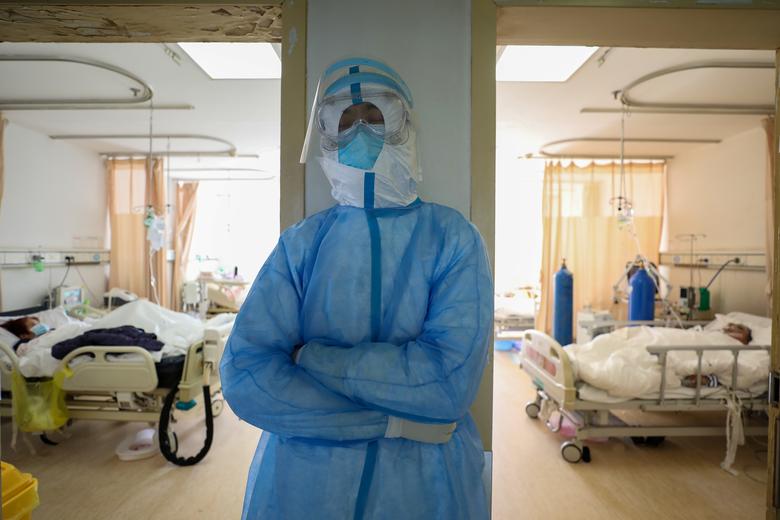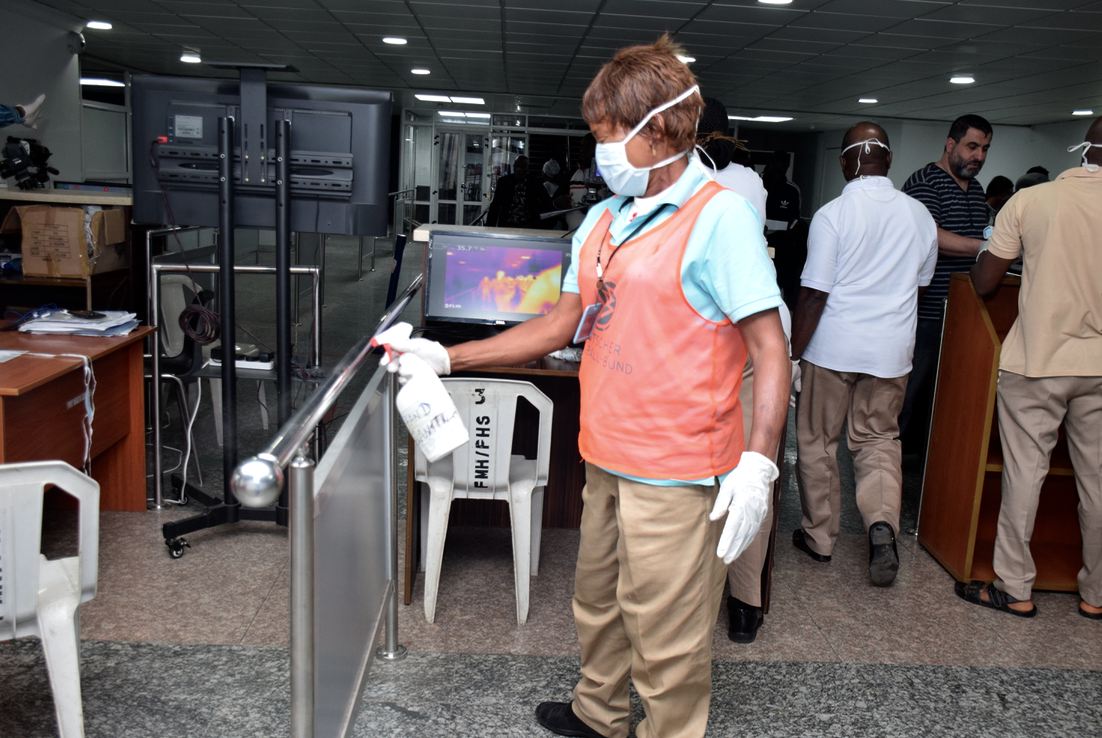A medical worker in protective suit takes a break at an isolated ward of Wuhan Red Cross Hospital in Wuhan, Hubei province, China, February 16. China Daily via REUTERS
It is highly unlikely that you will be infected by coronavirus code-named COVID-19, according to prominent facts from the ongoing epidemic of the virus. This is not what you would think given the hysteria, myths and information that spread every day on the disease.
Coronaviruses are a large family of viruses that may cause a range of illnesses in humans or animals. Among the most well-known coronaviruses are Severe Acute Respiratory Syndrome (SARS), Middle East Respiratory Syndrome (MERS), and Swine Flu. The most-recently discovered coronavirus causes coronavirus disease and has been code-named COVID-19 by the World Health Organisation (WHO). It is known so far to have originated from an animal.
Prevention and avoidance of infection is easy and possible through simple actions that each individual can take, and which organizations, companies and communities can facilitate.
The chances of recovery from the disease is also very high compared to other recent viral epidemics. Facts and data on COVID-19 reinforce the positive conclusions stated above. Yet the spread of COVID-19 is real and new facts are likely to surface as the epidemic becomes scientifically more familiar.
Advertisement
The caricature of Chinese people as being carriers of COVID-19 is incorrect. Though the first known cases of the disease and the largest number of infections and deaths were in Wuhan in Ubei province of China, COVID-19 has appeared in at least 64 countries, three of them are in Africa – Algeria, Egypt and Nigeria.
Egypt was the first African country to report a Coronavirus case, a Chinese person who has since tested negative and has been discharged from quarantine. Algeria has two suspected cases and one of them was confirmed for infection. The two cases were Italians. Nigeria has reported a case and the Italian who travelled to Lagos on February 25 had his case confirmed on February 27. He has been quarantined at a facility in Lagos.
According to the government of Lagos State, the patient’s symptoms have subsided. It means that his potential to infect others has decreased. If the trend continues, he will be released as he will no more pose any danger to others.
Advertisement
It is likely that more Africans will be infected by COVID-19 as time goes on, especially Africans who live in or visit places that have high number of cases of the disease. For example, two South Africans were detected to have the disease on board the cruise ship, The Diamond Princess, in Japan. The Diamond Princess has recorded 705 cases of COVID-19 and 6 deaths to date. It carried 3,711 people and was sailing from Singapore to Japan when the first case was discovered.
Unfortunately, infected people may carry the virus for many days before they show symptoms, and they can infect others. Infection takes place through droplets when infected persons sneeze or cough. Fomites, object or substance that is capable of transmitting infectious organisms from one individual to another, also may carry the virus through to others. Metals and metallic objects are said to be efficient fomites for COVID-19.
Estimates by credible organizations are that infected people have 98 per cent recovery rate from the disease. The two per cent of patients who die from it are predominantly vulnerable persons such as older people above the age of 50 and most of them have pre-existing conditions, such as diabetes, cardiovascular disease, hypertension, chronic respiratory disease or cancer. It means that young people have a very high capability to recover from infection based on what is known to date about the virus. In a larger context, whereas SARS has 9.6 per cent and MERS has 34 per cent mortality rates, COVID-19 has about 2 per cent mortality rate.
How does one avoid COVID-19? Remember the following simple measures. Wash and rinse hands thoroughly with soap and water for at least 30 seconds. Do it frequently and encourage others to do the same. The hands are the major carriers of viruses and washing hands with soap and water properly kills most viruses. In the absence of water and soap, sanitizers are also effective but not as well as soap and water. Water alone if it is all that is available is useful but very weak as a cleaner for viruses.
Advertisement
Avoid touching the nose, mouth, eyes with hands. The hands pick up viruses and transmit them easily through these parts of the body.
Stay a good distance, about one metre or three feet, away from anyone who sneezes or coughs. The droplets from their sneeze or cough cannot reach you at this distance. Anyone who sneezes or coughs should cover their noses and mouths to avoid spreading droplets to others.
Fomites, such as clothes, utensils, and furniture, also transmit viruses. In public places especially, use fomites sparingly and clean hands frequently when public objects are used.Stay at home if you feel ill and seek medical care as soon as possible if the illness persists. It is important to be informed and to obtain new information on the new virus. However, avoid mis-information and myths. For example, WHO recommends use of face masks for those who are taking care of patients with COVID-19 or for those who may have cough, cold, or sneezing. Wearing masks is not a substitute for regular hand cleaning.
There is a lot of wrong information about the current epidemic given the power of social media that turns just about anyone into “specialists”. Each country has credible sources of information and there are various international organizations that competently provide information. Top of the list are World Health Organization, Center for Disease Control, National Public Health agencies, and well-established, reputable media organizations.
Bunmi Makinwa is the CEO of AUNIQUEI communication for leadership
Advertisement
Views expressed by contributors are strictly personal and not of TheCable.
Add a comment







